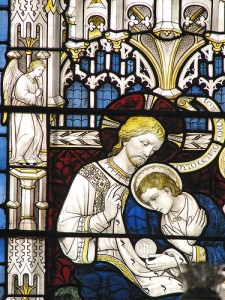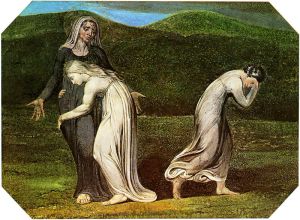In an explosive book, "The Man Jesus Loved", the reputable biblical scholar Theodore Jennings mounts an extended argument that Jesus himself was actually gay and that the beloved disciple of John's Gospel was Jesus' lover. To support this provocative conclusion, Jennings examines not only the texts that relate to the beloved disciple but also the story of the centurion's servant boy and the texts that show Jesus' rather negative attitude toward the traditional family: not mother and brothers, but those who do the will of God, are family to Jesus. Jennings suggests that Jesus relatives and disciples knew he was gay, and that, despite the efforts of the early Church to downplay this "dangerous memory" about Jesus, a lot of clues remains in the Gospels. Piecing the clues together, Jennings suggests not only that Jesus was very open to homosexuality, but that he himself was probably in an intimate, and probably sexual, relationship with the beloved disciple.-Daniel Helminiak, Sex and the Sacred
Sunday, 27 December 2009
St John the Evangelist, the "Beloved Disciple": December 27th
In the catalogue of "gay saints", or pairs of supposedly "gay lovers" in Scripture, the coupling of John the Evangelist (the "beloved disciple") and Jesus himself is surely the most controversial. Many people, including some of my friends from the LGBT Soho Masses, find the whole idea that this may have been a "gay", sexually active relationship, highly offensive. Others argue the opposite case.
Sunday, 20 December 2009
Ruth & Naomi
The story of Ruth and Naomi is widely quoted by queer writers as an example from Scripture of possible lesbian love: but how relevant is it? Superficially at least, it is just a simple story of exceptionally strong family affection and loyalty, between mother- and daughter- in-law. Whether in any way “lesbian” or not, the story is relevant, but not perhaps in the way usually told. To unravel the lessons it may hold for us, let’s begin with the simple story.
Naomi was an Israelite widow, living for a while (on account of famine) in Moab, where she married her two sons to Moabite women, Orpah and Ruth. The sons later died, leaving Naomi “all alone, without husband or sons” ,
She did have two daughters-in-law, and when she heard that conditions back in Israel had improved, she returned, initially taking her two daughters-in-law with her. She then had a change of heart, and encourages the two women to return to their own home in Moab. After some persuasion, Orpah did so, but Ruth refused.
Do not press me to leave you
Or turn back from following you!
Where you go I will go,
Where you lodge, I will lodge;
Your people will be my people, and your God my God.
Where you die, I will die –
There will I be buried.
May the Lord do thus and so to me,
and more as well,
if even death parts me from you.
(Ruth 1: 16-17)
Subscribe to:
Comments (Atom)

